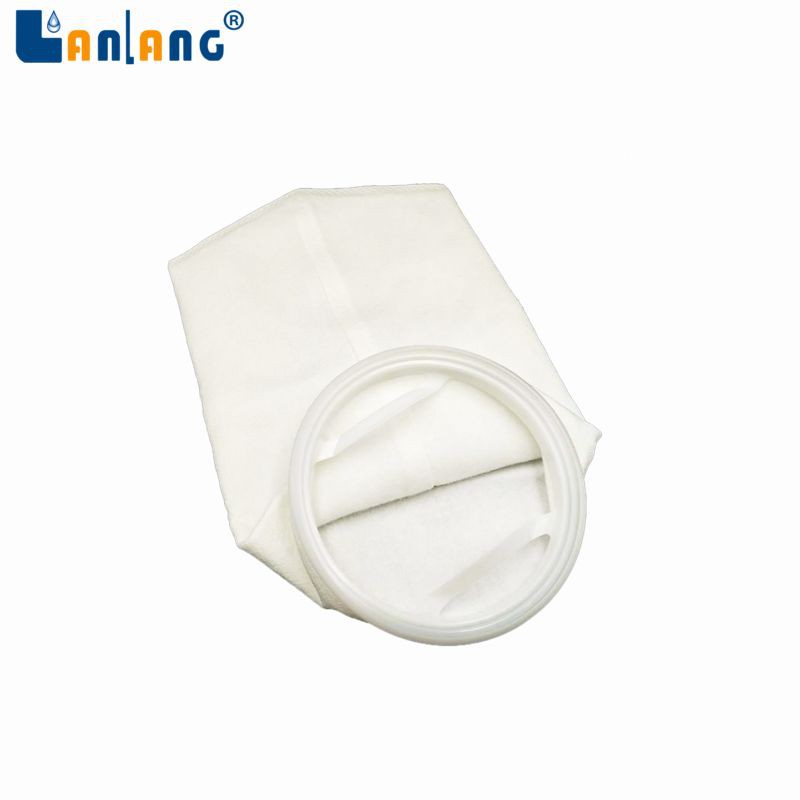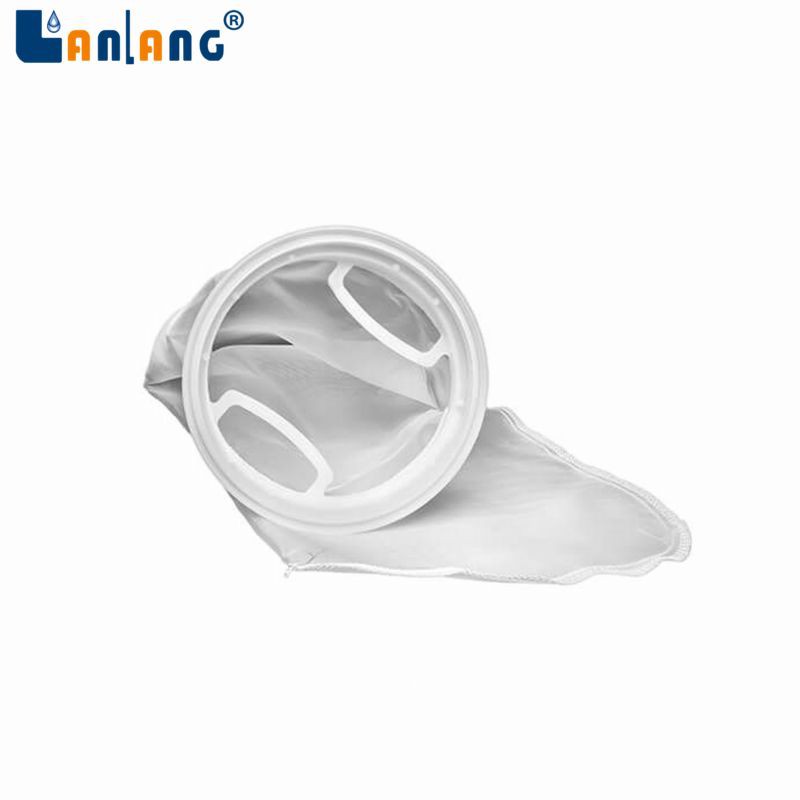In the realm of industrial filtration, filter bags play a crucial role in ensuring the purity and quality of various processes. As a dedicated filter bags supplier, I've witnessed firsthand the diverse applications and significance of these essential components. One often overlooked aspect that holds great importance is the weight of filter bags. In this blog, we'll delve into what the weight of filter bags means, why it matters, and how it impacts different industries.
Understanding the Weight of Filter Bags
The weight of a filter bag is not just a random number; it is a carefully calculated parameter that reflects the amount of material used in its construction. This weight is typically measured in grams per square meter (gsm) or ounces per square yard (osy). A higher weight generally indicates a denser and more robust filter bag, while a lower weight suggests a lighter and more porous one.
The weight of a filter bag is determined by several factors, including the type of material used, the manufacturing process, and the intended application. For example, PE Filter Bag, made from polyethylene, are known for their lightweight and chemical resistance. They are often used in applications where a lower weight and high flow rate are required, such as in the food and beverage industry.
On the other hand, SS Filter Bag, made from stainless steel, are much heavier due to the density of the metal. These bags are highly durable and resistant to high temperatures and corrosive environments, making them ideal for applications in the chemical and petrochemical industries.
Nylon Filter Bag offer a balance between weight and performance. They are stronger than PE filter bags and more flexible than SS filter bags, making them suitable for a wide range of applications, including water treatment and pharmaceutical manufacturing.
Significance of Filter Bag Weight
Filtration Efficiency
The weight of a filter bag directly affects its filtration efficiency. A heavier filter bag with a higher gsm or osy has a greater density of fibers, which means it can capture smaller particles more effectively. This is particularly important in industries where high levels of filtration are required, such as in the electronics and pharmaceutical industries, where even the smallest contaminants can cause significant problems.
For example, in the semiconductor manufacturing process, a single particle of dust can damage a microchip, leading to costly production losses. A heavy-duty filter bag with a high filtration efficiency can help prevent such issues by removing these particles from the air or liquid being filtered.
Durability and Longevity
A heavier filter bag is generally more durable and has a longer lifespan than a lighter one. The additional material provides greater strength and resistance to wear and tear, making it less likely to rupture or tear during operation. This is especially important in applications where the filter bags are subjected to high pressures, abrasive materials, or harsh chemicals.
In the mining industry, for instance, filter bags are used to separate solids from liquids in the ore processing plants. The bags are exposed to large amounts of abrasive materials, such as sand and rock particles, which can quickly wear down a lightweight filter bag. A heavy-duty filter bag can withstand these harsh conditions and last longer, reducing the frequency of bag replacements and minimizing downtime.
Flow Rate
While a heavier filter bag offers better filtration efficiency and durability, it can also have a negative impact on the flow rate. The increased density of the fibers in a heavy filter bag creates more resistance to the flow of air or liquid, which can reduce the overall flow rate through the filter.
This is a critical consideration in applications where a high flow rate is required, such as in the oil and gas industry, where large volumes of fluids need to be filtered quickly. In these cases, a lighter filter bag with a lower weight may be more suitable, as it allows for a higher flow rate while still providing an acceptable level of filtration.
Cost
The weight of a filter bag also affects its cost. Heavier filter bags generally cost more than lighter ones due to the increased amount of material used in their construction. However, it's important to consider the long-term cost implications when choosing a filter bag. A more expensive heavy-duty filter bag may have a longer lifespan and require fewer replacements, which can result in lower overall costs in the long run.
In addition, the cost of downtime due to filter bag failures should also be taken into account. A lightweight filter bag that needs to be replaced frequently can cause significant disruptions to the production process, leading to lost productivity and increased costs.
Selecting the Right Filter Bag Weight
Choosing the right filter bag weight depends on several factors, including the specific application, the type of material being filtered, the required filtration efficiency, and the desired flow rate. Here are some general guidelines to help you make an informed decision:
Identify the Application
The first step is to determine the specific application for which the filter bag will be used. Different industries have different requirements when it comes to filtration, so it's important to understand the unique needs of your application.
For example, if you're working in the food and beverage industry, you'll need a filter bag that is compliant with food safety regulations and can remove contaminants without affecting the taste or quality of the product. On the other hand, if you're in the chemical industry, you'll need a filter bag that is resistant to the chemicals being used and can withstand high temperatures and pressures.
Consider the Material Being Filtered
The type of material being filtered also plays a crucial role in determining the appropriate filter bag weight. If the material is abrasive or contains large particles, a heavier filter bag may be necessary to ensure durability and prevent damage to the bag.
For instance, if you're filtering wastewater from a construction site, which may contain sand, gravel, and other abrasive materials, a heavy-duty filter bag with a high gsm or osy would be more suitable. On the other hand, if you're filtering a relatively clean liquid, such as water for drinking or industrial use, a lighter filter bag may be sufficient.
Evaluate the Filtration Efficiency Requirements
The level of filtration required for your application will also influence the choice of filter bag weight. If you need to remove very small particles, a heavier filter bag with a higher filtration efficiency may be necessary.
For example, in the pharmaceutical industry, where strict quality control standards are in place, a filter bag with a high efficiency rating, such as a HEPA (High-Efficiency Particulate Air) filter bag, may be required to ensure the purity of the drugs being produced.
Balance the Flow Rate and Filtration Efficiency
As mentioned earlier, there is a trade-off between filtration efficiency and flow rate. You need to find the right balance between these two factors to ensure that your filtration system operates effectively.


If you require a high flow rate, you may need to choose a lighter filter bag with a lower weight, even if it means sacrificing some filtration efficiency. Conversely, if filtration efficiency is your top priority, you may need to accept a lower flow rate and choose a heavier filter bag.
Conclusion
The weight of filter bags is a critical factor that can significantly impact their performance, durability, and cost. As a filter bags supplier, I understand the importance of selecting the right filter bag weight for each specific application. By considering the factors discussed in this blog, you can make an informed decision and choose a filter bag that meets your filtration needs while providing the best value for your money.
If you're looking for high-quality filter bags for your industrial filtration needs, I invite you to contact me to discuss your requirements. I'll be happy to provide you with expert advice and help you select the right filter bag for your application.
References
- "Industrial Filtration Handbook" by Andrew S. Teorey
- "Filtration and Separation" magazine
- Various industry reports and research papers on filter bag technology
